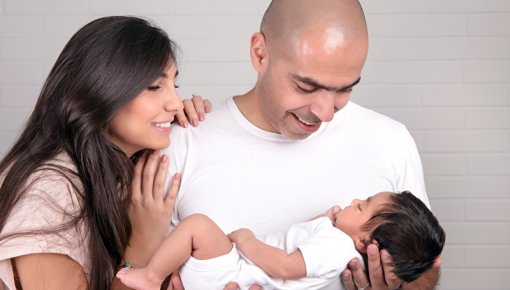Introduction

During the postnatal period, the mother and child recover from the birth. The mother’s body starts to change. Her womb shrinks back to its normal size and any injuries caused by the birth begin to heal. Her hormones move from pregnancy mode to breastfeeding mode.
The parents and the child get to know each other, adjust to the new situation, and create a special bond. Many fathers or co-mothers take time off work to enjoy this time and support their partner.
But the postnatal period is a challenging time too – especially if it’s the first child and everything’s completely new. A midwife can provide support during this phase. Help from family and friends is also very valuable – particularly if it’s hard for the mother to look after herself and get rest because of things like having to look after other children or relatives.
